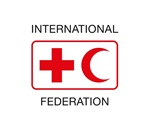Integration of support for migrants into the services provided by the emergency medical services. This reduces the vulnerability of migrants who often do not have access to immediate basic care.
The Lebanese Red Cross provides its emergency medical services (EMS) to all people living in Lebanon, regardless of their legal status. The EMS system was established in 1945 and is the main provider of emergency services in the country. Volunteers trained by the Lebanese Red Cross are available for 24 hours 7 days a week to provide immediate medical response to individuals who call the emergency hotline 140. There are approximately 3,500 volunteers involved around the country, with 47 branches nationwide. The EMS provides a range of services, including: (i) first aid for injuries and heart attack victims, on site, at EMS centres, or at home for children and sick people; (ii) urgent transport of victims of road, mountain and home accidents; (iii) first aid posts at national sporting events, cultural and artistic celebrations, and ski resorts; (iv) transport of patients to and from hospitals; and (v) transport of corpses (in special cases). The Lebanese Red Cross, abiding by the Fundamental Principles, does not consider the religion, nationality or status of persons it assists. For migrants, the service is particularly interesting as it is free of charge. Moreover, because some hospitals do not accept patients from other nationalities, or may not have sufficient capacity, the Lebanese Red Cross calls beforehand to ensure that the hospital will accept a patient. If not, it seeks other options until health care can be secured. During the influx of Syrian migrants, the Lebanese Red Cross also established temporary posts in areas with large population movements.
In 2015 the EMS served 255,985 beneficiaries of whom 25,138 were Syrian.
Design. [P1] Reduces vulnerability of migrants in emergency health events.
Implementation. [P2] Integrates migrants in humanitarian programming.
- Hospitals cannot always accept patients (due to their lack of capacity or the financial constraints of migrants).
- Lack of funds for ambulances, equipment and maintenance.
- Safety for volunteers and patients, particularly in conflict areas.
- Call hospitals beforehand to check for capacity and acceptance of patient, so that they are not rejected.
- Coordination with the army, internal forces, and hospitals is essential to make best use of the strengths of each actor.
Smart practices
Smart practices report and database survey
About the report
People migrate in pursuit of a better life for themselves and their families. As described in the International Federation of Red Cross and Red Crescent Societies’ (IFRC) Policy on Migration, “migrants are persons who leave or flee their habitual residence to go to new places – usually abroad – to seek opportunities or safer and better prospects.
Read more
About the International Federation

